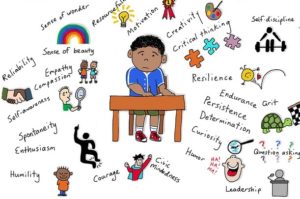 To do their work, employees typically need hard skills. For example, Customer Service Officers need to know how to solve customers’ problems, Computer Programmers need to be able to write functional codes, and Accountants need to be able keep and inspect financial records.
To do their work, employees typically need hard skills. For example, Customer Service Officers need to know how to solve customers’ problems, Computer Programmers need to be able to write functional codes, and Accountants need to be able keep and inspect financial records.
However, beyond the hard skills, which customer service officer do you go to? The one who is pleasant and takes time to answer your questions; or the one who treats you like a number in a long line of customers?
Which programmer do you retain when the economy is down? The one whose attitude is positive and upbeat, and who is always willing to help; or the one who is inflexible and has a hard time admitting mistakes?
Likewise, think about accountants. The one who has a great work ethic, listens actively, and encourages his colleagues is the one who will, most likely, excel in his position and organization.
In these situations, and all the others like them, it’s the soft skills that matter. Soft skills are personal attributes that enable you to interact effectively and harmoniously with other people. Examples include your communication skills, attitude, business etiquette, work ethic, emotional intelligence, ability to handle crises, and even the way you carry yourself.
On the other hand, hard skills are the technical expertise and skill sets you need to complete your tasks at work. In other words, they are your knowledge and occupational skills. Examples of hard skills include accounting skills, knowledge of a particular software, typing, knowledge of web technologies, pharmacists’ knowledge of prescription medications, project management skills, or experience in a particular industry sector.
Since hard skills are specific knowledge and abilities that are easily quantifiable and measurable, organizations tend to focus more on them.
But it’s just not enough to be highly trained in hard skills, without developing the softer, interpersonal and relationship-building skills that help people to communicate and collaborate effectively. Hence, organizations, especially those dealing with customers face-to-face, are generally more successful, if they have adequate pool of soft skills in their staff.
The reality is that when soft skills are absent or insufficient, your organization will not be able to use its hard skills or technical expertise to full advantage.
And this manifests in different ways, some of which are as follows:
- Your organization is really good at getting clients, and not so good at retaining them
- Your organization has high staff turnover and have to keep retraining people
- Your organization has lots of managers and supervisors but no real leaders
- Your sales people manage to get meetings with prospective clients, but rarely proceed to the next stage or close deals
Outcomes like these highlight the inadequacy of hard skills and make soft skills a critical factor in organizational success.
Ironically, many organizations do not train their employees on soft skills as much as they do on hard skills. But what they may not know is that it could be their soft skills—or lack thereof—that could be holding their organization back from achieving their next level of growth.
Soft skills ensure a productive, collaborative, and healthy work environment.
For instance, managers with poor people skills can create an unfriendly work environment, which will typically lead to unhappy workers, low productivity, and costly employee turnover.
Similarly, an employee who lacks time management skills can cause unnecessary delays in projects. In many cases, this could cost an organization valuable time or make unhappy customers to leave.
Also, an employee who is not assertive can make needless concessions to demanding customers at the expense of the organization.
Soft skills are more critical than ever in the modern workplace as organizations struggle to find meaningful ways to remain competitive and be productive.
Thus with a strong set of soft skills complementing the hard skills of your employees, you will be putting in place one of the most important paving stones to organizational success.